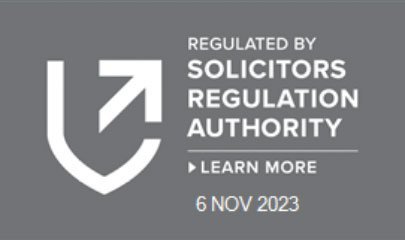Surrogacy
The path to parenthood is not always simple. If you are thinking about growing your family through surrogacy, either in the UK or abroad, you should seek specialist advice from a surrogacy solicitor.

UNITED KINGDOM
LEADING FIRM
2021

UNITED KINGDOM
LEADING FIRM
2022

UNITED KINGDOM
LEADING FIRM
2023
Request a callback
Enter your details below and organise a no-obligation, confidential callback. We offer a low-cost, fixed-fee 20 minute consultation.
Surrogacy
The path to parenthood is not always simple. If you are thinking about growing your family through surrogacy, either in the UK or abroad, you should seek specialist advice from a surrogacy solicitor.

UNITED KINGDOM
LEADING FIRM
2021

UNITED KINGDOM
LEADING FIRM
2022

UNITED KINGDOM
LEADING FIRM
2023

UNITED KINGDOM
LEADING FIRM
2021

UNITED KINGDOM
LEADING FIRM
2022

UNITED KINGDOM
LEADING FIRM
2023
Request a callback
Enter your details below and organise a no-obligation, confidential callback. We offer a low-cost, fixed-fee consultation.
Surrogacy
The path to parenthood is not always simple. If you are thinking about growing your family through surrogacy, either in the UK or abroad, you should seek specialist advice from a surrogacy solicitor.
There is a lot to consider and it can feel overwhelming. A surrogacy solicitor can guide you through the process, ensure you have all the information you need to make key decisions and help you meet all of the UK legal requirements.
This is important as surrogacy arrangements are not legally binding in UK and there is a limbo period after the child is born when legal issues can occur.
Get To Know
Surrogacy FAQ'S
What is surrogacy?
Surrogacy is an arrangement in which a woman agrees to become pregnant and give birth to a child for another person who will become the legal parent of the child.
Surrogacy arrangements are an increasingly popular way for people to grow their family in the UK. The woman who carries the child is called the “surrogate” and the person or people who will become the child’s legal parents are called the “commissioning” or “intended” parents.
There are two main types of surrogacy arrangements in the UK:
- “Straight” or “Traditional Surrogacy” when the surrogate’s own eggs are used with the sperm of the commissioning father.
- “Host” or “Gestational Surrogacy” when both eggs and sperm are used from the commissioning parents, or from other individuals, and the surrogate is unrelated to the child.
Is surrogacy legal in the UK?
Surrogacy is legal in the UK, but it cannot be commercialised or advertised. The act of surrogacy is considered a gift and it is therefore not legal to enter into a surrogacy arrangement where there is commercial gain. You are not able to advertise for a surrogate and surrogates are not allowed to advertise themselves. Any arrangements that you reach with the surrogate are not legally binding so you must transfer parental responsibility (the legal right and authority to care for and make life decisions for a child) through the Court.
What will my rights be when the child is born?
When the child is born the surrogate will automatically become the legal parent with parental responsibility, regardless of whether the child was conceived using traditional or gestational surrogacy. The commissioning father (who is also the biological father) can be recorded on the birth certificate and gain immediate parental responsibility if the surrogate is unmarried, but if she is married her husband is automatically the legal father.
As a child in UK cannot have more than two legal parents, parentage must always be transferred by the Court, most usually by a Parental Order. The application for the Parental Order must be made within six months of the child’s birth and must satisfy a number of factors. The surrogate (and her husband) must fully and freely give consent, but can do so no sooner than six weeks after the birth. Once the Parental Order is granted, the child’s birth will be re-registered and a new birth certificate will be issued so the child is treated as if born to the applicants.
There is a period of time before the Parental Order is granted when you are likely to have the child living with you, but without legal parental responsibility, so it is important to apply for your Parental Order well within the time-frame.
What if my child is born abroad?
It is common for people living in UK to use a surrogate based overseas, particularly from countries such as USA and Canada where commercial surrogacy is legal. If you do so, you may need to gain parental responsibility in both the country of birth and in UK, so it is advisable to seek legal advice in both jurisdictions before any attempt to conceive.
As UK law stands, unless you obtain a Parental Order in UK, the surrogate and her husband (if relevant) will still be recognised as your child’s parents in UK, regardless of your status in the birth country.
Is it necessary to have a Surrogacy Agreement?
A Surrogacy Agreement sets out the expectations and intentions of the parties throughout the surrogacy and after the birth. Although they are not legally binding in UK, they are recognised in many jurisdictions and it is helpful to have one so you are clear on what will happen before the Parental Order is granted. The discussions surrounding the agreement will help you to identify and address potential issues before they occur. It is also useful to have a record of everyone’s intentions should there be a dispute or disagreement down the line.
You can make a Surrogacy Agreement at any stage in your journey, but it is advisable to prepare one at the outset. Agreements made before an attempt to conceive are sometimes referred to as Pre-conception Agreements, although Pre-Conception Agreements are more commonly used for shared parenting arrangements.
You should be aware that is against the law for a third party (including a solicitor) to negotiate a surrogacy contract for payment in UK, but there are non-profit organisations that are permitted to offer you advice. Click here for more detailed information on Surrogacy Agreements.
Legal Advice
For further advice on surrogacy in UK, international surrogacy or surrogacy disputes please contact Louise Allard or Sabrina Bailey.
Testimonials




UNITED KINGDOM
LEADING FIRM
2021

UNITED KINGDOM
LEADING FIRM
2022

UNITED KINGDOM
LEADING FIRM
2023


UNITED KINGDOM
LEADING FIRM
2021

UNITED KINGDOM
LEADING FIRM
2022

UNITED KINGDOM
LEADING FIRM
2023
About Us
As a specialist firm, we focus on all areas of family law and legal matters that affect private wealth.

Explore
Contact
Contact
info@allardbailey.com
(+44) 020 7993 2936
Head Office
3 Waterhouse Square,
138 Holborn, London, EC1N 2SW
Hertford Office
114-116 Fore Street, Hertford,
SG14 1AJ
Allard Bailey Family Law is a practice name of Allard Bailey Family Law Ltd, a company registered in England and Wales (no 10359344) and authorised by the Solicitors Regulation Authority (no 634271)
© 2024 Allard Bailey Family• All Rights Reserved








